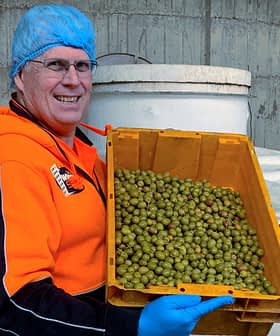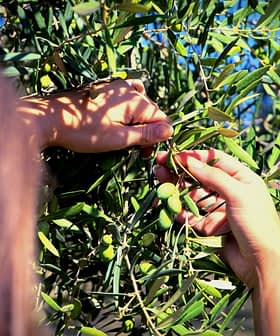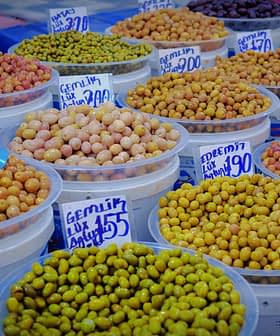Consuming Extra Virgin Olive Oil Results in More Polyphenols in Breast Milk, Study Finds
A study published in Food Chemistry found that diets with extra virgin olive oil can increase the phenolic content in breast milk, potentially passing on health benefits to infants. Researchers detected hydroxytyrosol metabolites in the plasma of both mothers and offspring, supporting the importance of maternal diet during pregnancy and lactation in promoting newborn health.
Diets incorporating extra virgin olive oil may increase the phenolic content of breast milk, passing on potential health benefits to the infant, the results of a new study suggest.
Published in Food Chemistry by a team of Spanish researchers, the study is reportedly the first to evaluate the possible vertical transmission of polyphenols to the offspring of laboratory rats fed extra virgin olive oil during pregnancy and lactation.
The study’s results demonstrate that enzymatic and microbial metabolites of hydroxytyrosol were detected in the plasma of the mother and offspring and the lactic serum.
See Also:Research NewsHydroxytyrosol is a phenolic compound and powerful antioxidant. Its regular consumption has been associated with anti-inflammatory and anti-cancer properties, but it can also exert a role in preventing eye and skin conditions.
The scientists said breast milk contents might vary considerably during the lactation period. While approximately 87 percent of breast milk is water, the remaining 13 percent includes hormones, enzymes, immune factors and beneficial microorganisms.
Previously, researchers found that following the Mediterranean diet can affect the lipid composition of breast milk due to the unsaturated fats of extra virgin olive oil. In addition, the study’s authors noted olive oil consumption during pregnancy has proven beneficial for preventing wheezing in early childhood.
Using lab rats, the researchers hypothesized that there might be a direct connection between a mother’s olive oil consumption and an infant’s health.
“The concentration and number of hydroxytyrosol derivatives were higher than those of tyrosol, and the microbial metabolites were found in the highest concentration,” the researchers wrote.
“The observed vertical transmission of extra virgin olive oil phenolic compounds, whose health benefits are widely reported, provides further support for the importance of the maternal diet during pregnancy and lactation,” they added.
The results confirm earlier observations and research into the benefits of following the Mediterranean diet and extra virgin olive oil consumption on newborns.
A diet rich in monounsaturated fats during the prenatal period “makes the brain more plastic, more dynamic and therefore, probably, more resistant to any negative environmental stresses in adult life,” Marco Andrea Riva, a neuropsychologist at the University of Milan, told Olive Oil Times in a 2015 interview.
Other studies have shown a possible connection between following the Mediterranean diet during pregnancy and reducing the risk of newborns developing obesity.
According to other studies, the same diet could also protect infants from the Small for Gestational Age condition, a leading cause of mortality among newborns. In addition, olive oil consumption has also been found beneficial for children born with low birthweight.
Several previous studies suggested that extra virgin olive oil may be used as a dietary supplement for newborns unable to drink breast milk due to its content of omega 3 and omega 6 fatty acids and its role in absorbing vitamin D.









